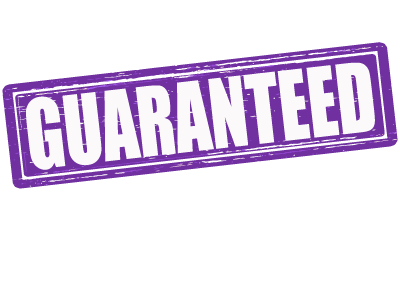Fixed Fee Conveyancing Solicitors: Transparent Quotes & Expert Service
Are you looking for transparent and predictable legal costs for your property transaction? At SAM Conveyancing, we specialise in fixed fee conveyancing, providing clear, upfront quotes for buying, selling, transferring equity, help to buy repayments, remortgage conveyancing, and lease extensions.
Say goodbye to hourly rates and hidden charges – our expert panel of solicitors ensures you know exactly what you're paying for from the outset. Plus, with our No Sale No Fee protection, you only pay legal fees if your transaction successfully completes.
- SAM Conveyancing offers fixed fee conveyancing quotes with a No Sale No Fee guarantee for both sales and purchases.
- A truly transparent fixed fee conveyancing quote clearly outlines what's included and, crucially, what isn't.
- Not all conveyancing solicitors provide fixed fee options; many still charge hourly.
- Typically, the fixed fee for a property purchase is higher than for a sale due to the increased legal intricacies.
- A significant number of complaints to the Legal Ombudsman relate to undisclosed costs.
- A fixed fee doesn't mean the solicitor can't charge more if more work is required.
What is Fixed Fee Conveyancing?
Fixed fee conveyancing refers to a pricing model where your solicitor or conveyancer quotes and charges a pre-agreed, set fee for their legal services, rather than billing by the hour.
This approach has become the industry standard, moving away from the hourly rates that were more common before the property boom of the 2000s, when fierce competition drove the need for clearer pricing.
A Fixed Fee Conveyancing Quote covers your solicitor's professional fees for handling the legal work involved in your property transaction. It does not include third-party costs, commonly known as disbursements.
What are third-party disbursements?
These are expenses paid to external parties on your behalf, such as Stamp Duty Land Tax, Land Registry fees, and Conveyancing Searches.
At SAM Conveyancing, our fixed fee quotes are designed for complete clarity. We always provide a detailed breakdown of both our legal fees and all anticipated third-party costs upfront. This ensures you're never left with surprises, allowing you to realistically and accurately budget for your entire conveyancing journey.
While fees vary, the average fixed fee for a £250,000 house purchase is around £800, including VAT, but this can fluctuate depending on the transaction and the firm.
What information do fixed-fee solicitors need for an accurate quote?
- Property Price: The purchase or sale price directly impacts Stamp Duty Land Tax and Land Registry fees. For undervalued properties, the full market price is required for accurate calculations.
- Property Tenure: Whether the property is freehold, leasehold, or a share of freehold affects the volume of legal work. Leasehold and share of freehold properties typically involve more intricate legal processes, leading to a higher fixed conveyancing fee.
- Mortgage: If a mortgage lender is involved, your solicitor will need to undertake additional work to satisfy their requirements. This extra work is factored into your quote.
- Involvement of Schemes: Specific schemes such as Right to Buy, Shared Ownership, Discount Market Sale, or New Build purchases add layers of additional legal work. You must declare these upfront, as they will result in a higher fixed fee conveyancing quote. Failure to state this on instruction may lead to a recalculation of your quote.
- Property Postcode: The property's location can dictate the need for specific local searches, such as coal mining searches in certain areas, which are factored into the overall costs.

How To Buy A House Without Killing Anyone could be the difference in every mover’s dream: buying and moving into your new home stress-free...
OR: stress, missed deadlines, legal disasters, building defects, and possibly the collapse of the whole transaction.
(Costing you a small fortune, a head full of grey hairs, and driving you to threaten the life of your solicitor, lender, co-owners, family, partner, or some combination of all five).
£9.99
What isn't included in a fixed cost conveyancing purchase?
These are variable expenses paid to external organisations on your behalf and depend on the specifics of your property and transaction. We always ensure these are clearly outlined in your quote to avoid any surprises.
Conveyancing Cost | Why isn't it fixed? |
Stamp Duty Land Tax | This property tax is calculated based on the purchase price of the property, which can sometimes change during a transaction. Your specific tax liability also depends on factors like whether you're a first-time buyer or purchasing an additional property. Use our online Stamp Duty Calculator to determine your estimated tax. |
Land Registration Fee | These fees are paid to HM Land Registry to register you as the new legal owner of the property. The fee is determined by the property's purchase price and can vary if the price changes during the conveyancing process. |
Conveyancing Searches | You are required to pay for various conveyancing searches (e.g., local authority, environmental, water & drainage) depending on the property's location and the mortgage lender's requirements. |
Freeholder fees | When purchasing a leasehold property, you may incur additional costs payable directly to the freeholder or their managing agents. These can include notice fees (for informing them of the new ownership) or engrossment fees. These are external charges and not part of your solicitor's fixed fee. |
Does fixed price conveyancing include every eventuality?
While a fixed price conveyancing quote provides certainty for the standard legal work, it's important to understand that it cannot cover every single unforeseen eventuality that might arise. The conveyancing process can sometimes uncover unexpected issues, such as a defective property title or an absent freeholder, which require additional work.
When providing an initial quote, your solicitor or conveyancer would not have been aware of these issues. Therefore, they cannot be expected to handle this additional, often significant, work for free, as the cost for resolving could potentially exceed the original fixed fee conveyancing quote.
How can SAM Conveyancing help with this?
This is why a truly transparent fixed fee quote, like those from SAM Conveyancing, comes with a clear caveat about potential additional fixed fees. These are charges for specific, non-standard work that may become necessary during the transaction.
A reputable fixed fee conveyancing solicitor should always provide you with a list of these potential additional services within their initial quote or clearly outline them in their terms of service.
At SAM Conveyancing, our commitment is to give you the most accurate and transparent quote possible. That's why we collect property details upfront to provide a bespoke quote tailored to your specific situation.
How are additional fees regulated?
The Solicitors Regulation Authority (SRA), the regulatory body for solicitors in England and Wales, supports this approach, stating:
"The rules do not require you to publish a binding quote for every scenario you may deal with, for example, pre-empting unusual complexities or that a client may not follow your advice."
- Fixed, competitive legal fees with no hidden costs.
- Expert conveyancing solicitors with proven local knowledge.
- No Sale, No Fee protection for your transaction. Terms apply.
- On 99% of mortgage lender panels.
- Fast completions.
- We can solve any property challenge.
It is clear that fixed price conveyancing is now firmly established as the preferred model, but its success hinges on solicitors providing clear, upfront guidance on what is included and promptly notifying clients of any legitimate additional fees.
At SAM Conveyancing, our commitment to transparent fixed conveyancing fees is central to our service, ensuring we meet and exceed these regulatory standards for your peace of mind.
- Expert panel of conveyancing solicitors with local knowledge.
- Your transaction is protected by our No Sale, No Fee policy. Terms apply.
- Fixed fee conveyancing.
- We are on 99% of mortgage lender panels.
- We can solve any property challenge.
Andrew started his career in 2000 working within conveyancing solicitor firms and grew hands-on knowledge of a wide variety of conveyancing challenges and solutions. After helping in excess of 50,000 clients in his career, he uses all this experience within his article writing for SAM, mainstream media and his self published book How to Buy a House Without Killing Anyone.
Caragh is an excellent writer and copy editor of books, news articles and editorials. She has written extensively for SAM for a variety of conveyancing, survey, property law and mortgage-related articles.











